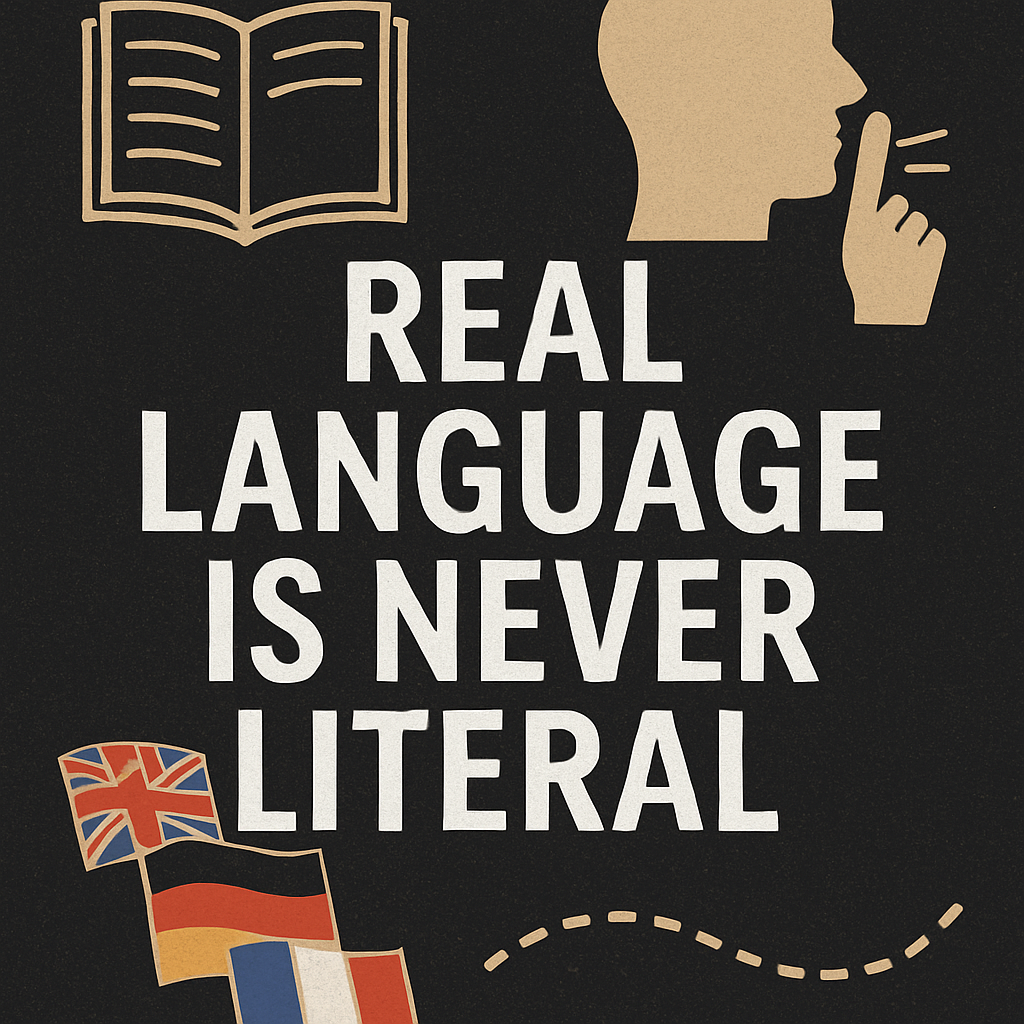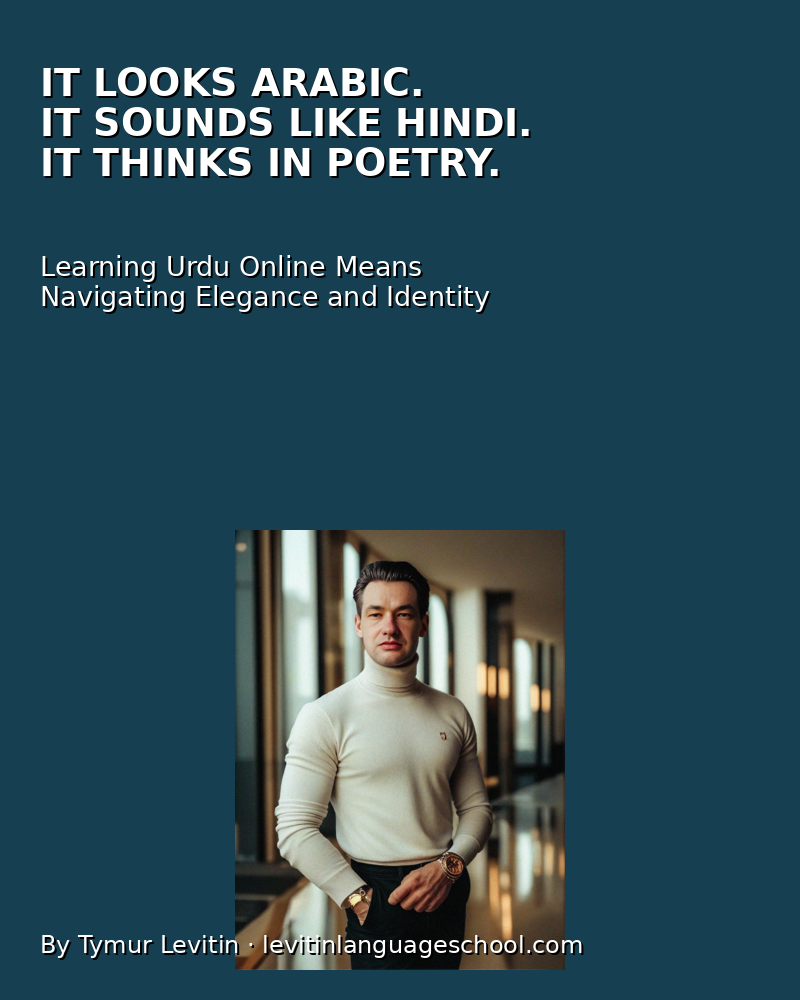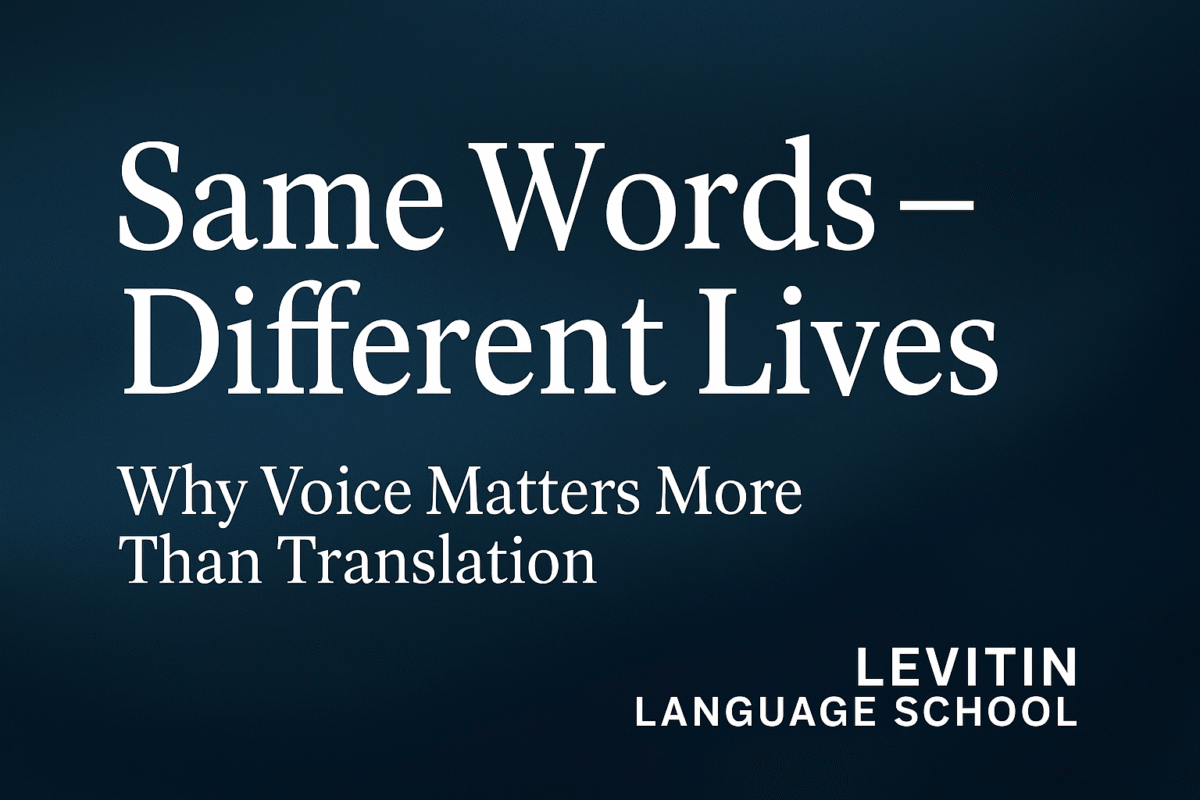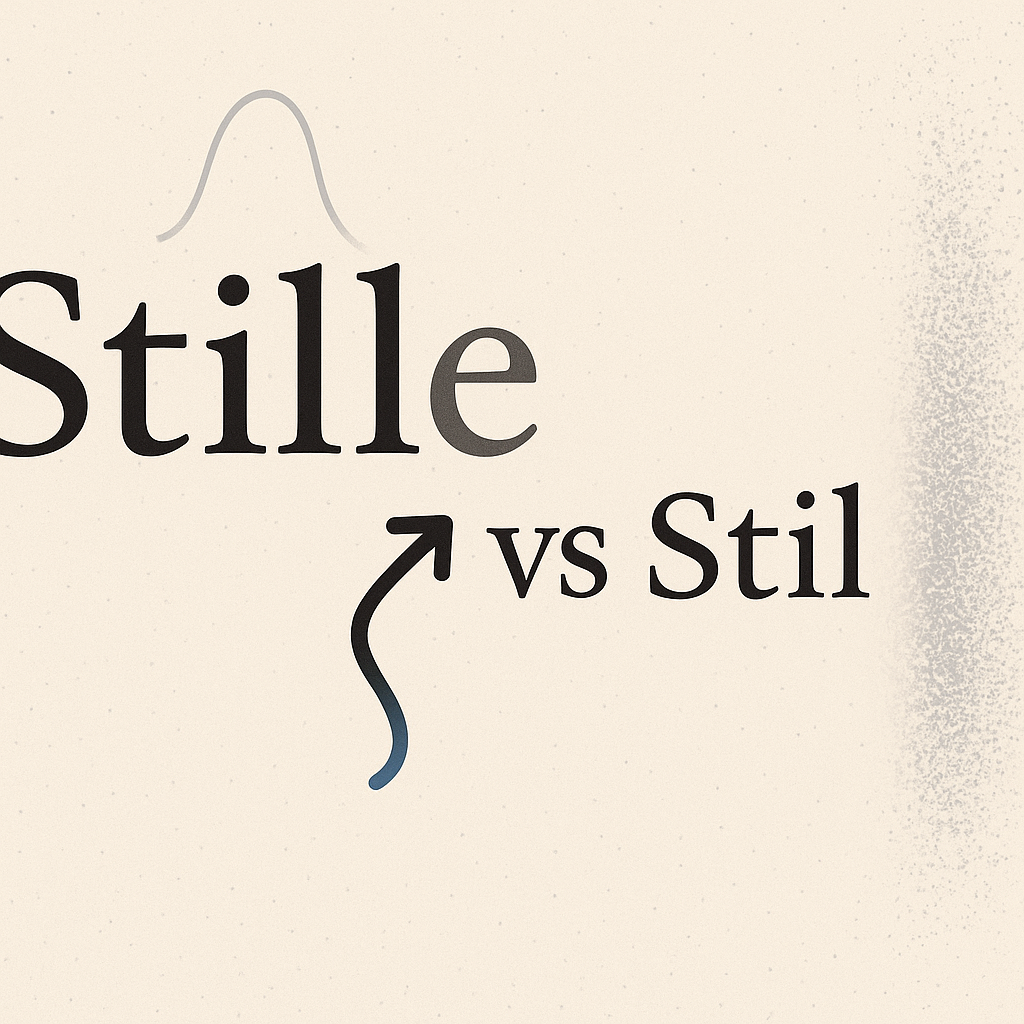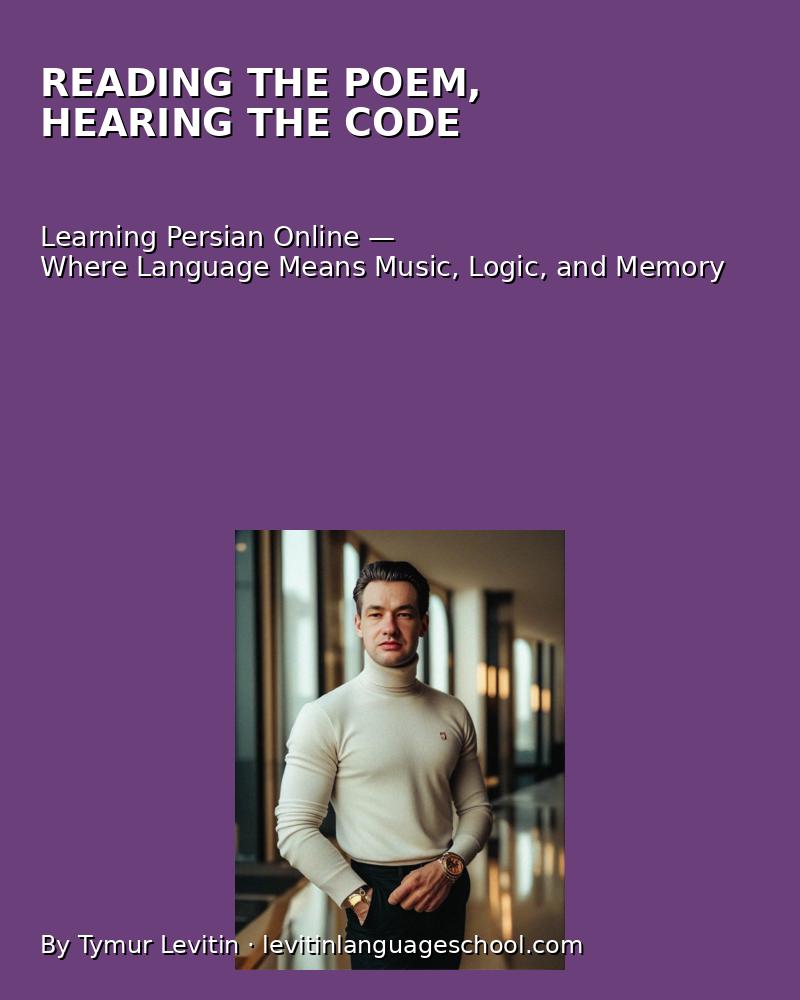Why Voice Matters More Than Translation
«Здесь лапы у елей дрожат на весу…»
The words are the same. But if you listen — it’s not the same song.
When It’s Not the Voice Singing, But the Soul
This song by Vladimir Vysotsky has been performed by many others —
for example, the Russian band Chizh & Co.
The lyrics haven’t changed. The melody is almost the same.
But the meaning is gone.
"(《世界人权宣言》) voice is different,"...... age is different,"...... energy is different.
Vysotsky
– Hoarse, heavy, almost breaking
– Each line feels like a final breath
– He doesn’t “perform” — he speaks from within
Although Vysotsky never fought in a war, his voice sounds as if he’s speaking on behalf of those who didn’t return.
It’s not acting. It’s survival inside the song.
Chizh & Co
– Smooth delivery
– Lyrical and clean
– Youthful, musical tone
Everything is beautiful. But the emotional message is different.
This is no longer a confession — it’s just a song.
Six Lines — Six Completely Different Stories
Here are six lines from the same song. Each of them sounds completely different depending on the voice, age, and life behind it.
«Здесь лапы у елей дрожат на весу…»
“The fir branches tremble, hanging in the air…”
Vysotsky — fear and emptiness
Chizh — lyrical landscape
«Твой мир колдунами на тысячу лет укрыт от меня и от света…»
“Your world is hidden from me and the light — cursed for a thousand years…”
Vysotsky — pain and isolation
Others — fantasy imagery
«Соглашайся хотя бы на рай в шалаше, если терем с дворцом кто-то занял…»
“Settle for a paradise in a shack — if someone else took the palace.”
Vysotsky — dignity in poverty
Others — romantic cliché
«Украду — если кража тебе по душе…»
“I’ll steal — if stealing is to your taste…”
Vysotsky — desperation
Others — playful flirtation
«Зря ли я столько сил разбазарил…»
“Did I waste all that strength for nothing…”
Vysotsky — self-destruction
Others — nothing lands at all
«И думаешь ты, что прекраснее нет, чем лес заколдованный этот…»
“And you believe nothing’s more beautiful than this enchanted forest…”
Vysotsky — bitterness
Others — poetic fantasy
These Emotions Exist in Every Language — But Sound Completely Different
英语
“Everyone I know goes away in the end” — Johnny Cash (Hurt)
→ Same despair — different structure, older voice, slower death.
德国
“Ich kann nicht mehr sehen…” — Herbert Grönemeyer (Der Weg)
→ Isolation, emptiness, and grief inside control.
乌克兰
“Я не хочу бути героєм твоїх ілюзій…” — Kozak System & S. Koltsova
→ No scream. Just silence. But the same pain — being unheard even when you’re honest.
What Does This Have to Do With Language Learning?
You can learn every word.
You can master every tense.
You can pronounce like a native.
But you still might say nothing.
True language begins where the meaning passes through breath, silence, and age.
When you speak — not to impress, but to be heard.
What We Teach at Our School
在 列维廷语言学校, we don’t teach templates.
We teach students to hear themselves.
To speak not like a machine — but like a person with something real to say.
Language isn’t words.
It’s voice.
And the voice is you.
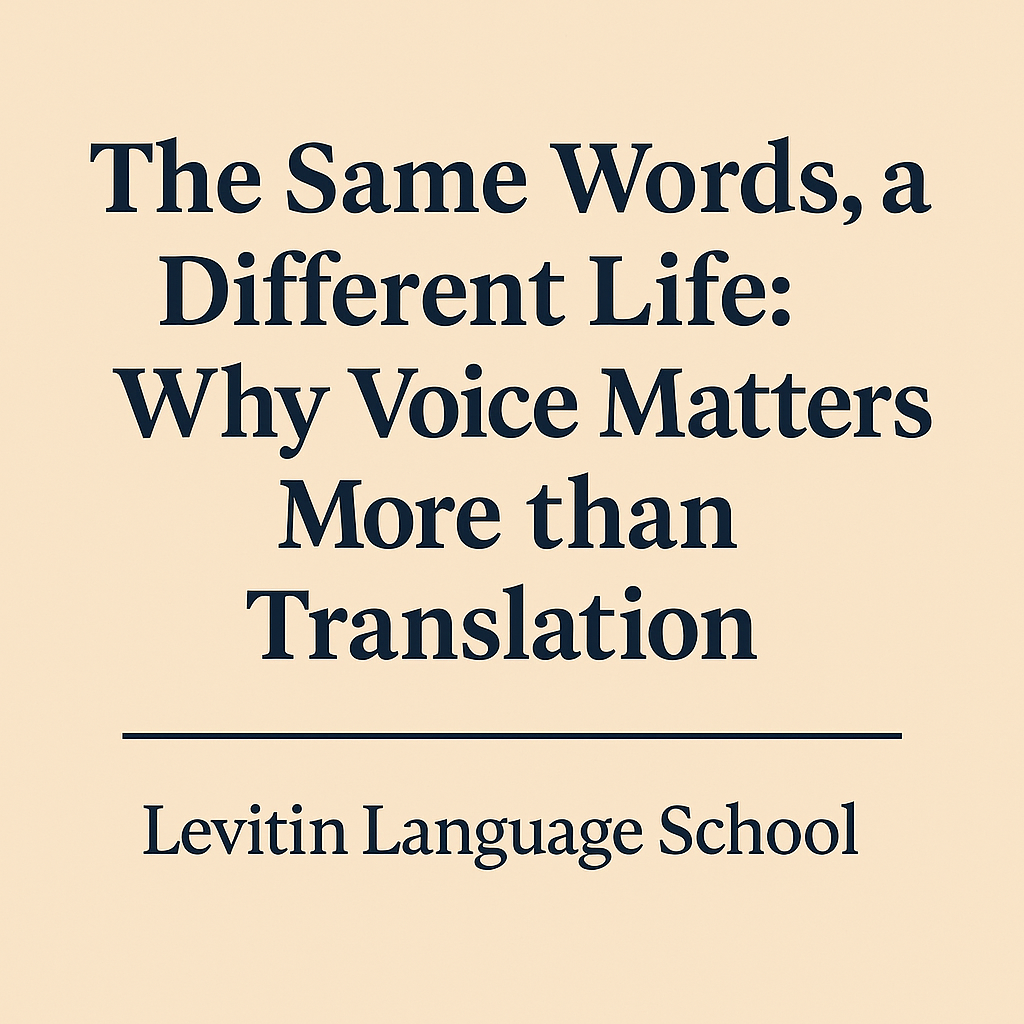
Read this article in other languages:
Russian version — “Одни и те же слова — разные жизни”
Ukrainian version — “Ті самі слова — інше життя”
Explore More:
- Real Language Is Never Literal
- 6 Songs That Speak Without Saying It
- Understanding Realia in Translation
Author’s Column by Tymur Levitin — founder, director, and lead educator of Levitin Language School (Start Language School by Tymur Levitin)
© Tymur Levitin

















